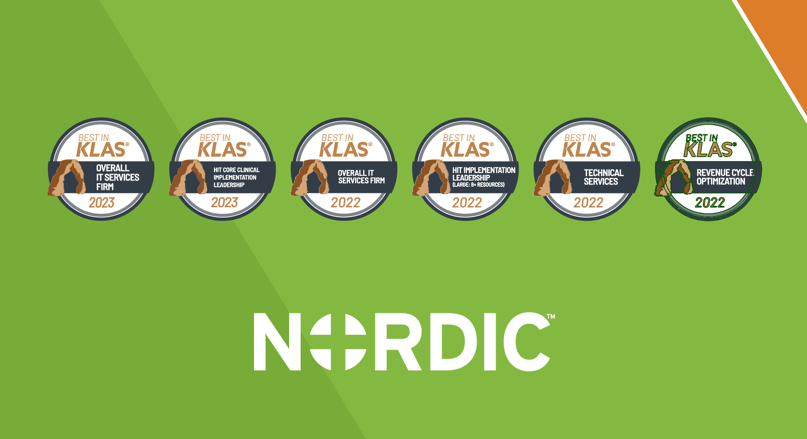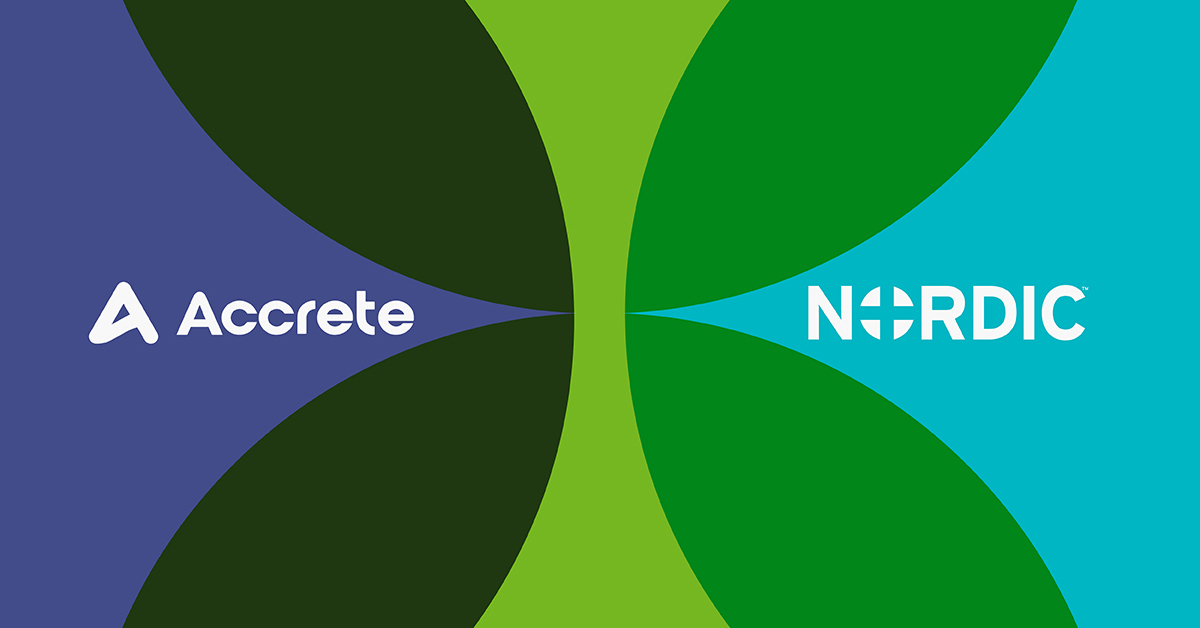 The release of the proposed and final Merit-based Incentive Payment System (MIPS) rules published by CMS in 2016 brought about an initial flurry of consternation around the complexity of the new Quality Payment Program, which seeks to award payments to Medicare providers (or eligible clinicians) based on quality of care provided rather than quantity of services. Additionally, the rule serves to synthesize several incentive programs, including the Physician Quality Reporting System (PQRS), the EHR Incentive Program (Meaningful Use), and the Value-based Payment Modifier program.
The release of the proposed and final Merit-based Incentive Payment System (MIPS) rules published by CMS in 2016 brought about an initial flurry of consternation around the complexity of the new Quality Payment Program, which seeks to award payments to Medicare providers (or eligible clinicians) based on quality of care provided rather than quantity of services. Additionally, the rule serves to synthesize several incentive programs, including the Physician Quality Reporting System (PQRS), the EHR Incentive Program (Meaningful Use), and the Value-based Payment Modifier program.
CMS and several health IT organizations have prioritized educating providers and making tools available such as the qpp.cms.gov website to help providers make sense of the program eligibility and requirements. Understandably, providers often look to their EHR vendors for guidance on translating policy to implementation and leveraging existing tools to minimize burdens often associated with new data reporting requirements.
While the new quality payment program may seem daunting, medical practices using the Epic EHR for reporting existing programs such as PQRS and Meaningful Use (MU) should be confident they’re well-positioned to earn maximum points during the 2017 transition year, and thus, have improved chances of positive payment adjustments in 2019 and beyond. Medical practices with Epic's EHR are poised for success in each of the MIPS performance categories that will be included as part of the MIPS final score during the transition year: Quality, Accountable Care Information, and Improvement Activities.
Quality
Quality is the most heavily weighted MIPS performance category, comprising 60 percent of the total MIPS score that determines the 2019 payment adjustment. For providers, this category should seem familiar as the list of quality measures available to choose from as part of MIPS are those that satisfied reporting for the PQRS as well as MU.
The benefits of capturing and reporting on quality measures electronically via Epic's EHR include the ability to monitor ongoing progress of those measures eligible for electronic submission, analytics capabilities of Epic reporting tools, and data submission capabilities directly from Epic to CMS.
Physicians and physician groups should make use of Epic's reports and dashboards to evaluate performance by drilling down on measures previously selected for PQRS and MU programs and comparing to benchmarks published by CMS. Earned points can be maximized by selecting outcome or high-priority, high-performing measures and submitting eligible measures via certified EHR technology.
Providers should also review PQRS feedback and Quality and Resource Use Reports (QRUR) published by CMS to benchmark performance and identify those measures where the highest number of points can be obtained. This external data can be integrated into dashboard reports or be reviewed for benchmarking independently.
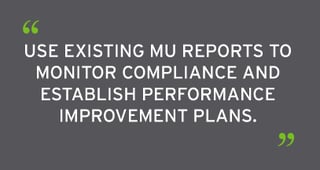 When clinicians identify alternate or additional quality measures, they can minimize work effort by using Epic's standardized workflows, decision support tools, and reporting tools to monitor adoption and performance. Once you achieve optimal levels of performance, it’s important to have a plan in place for ongoing monitoring to ensure you can sustain all benchmarks for a continuous 90-day period.
When clinicians identify alternate or additional quality measures, they can minimize work effort by using Epic's standardized workflows, decision support tools, and reporting tools to monitor adoption and performance. Once you achieve optimal levels of performance, it’s important to have a plan in place for ongoing monitoring to ensure you can sustain all benchmarks for a continuous 90-day period.
Advancing Care Improvement
Medicare-eligible clinicians prepared to attest for Meaningful Use Modified Stage 2 or Stage 3 are primed for the Advancing Care Improvement (ACI) performance category, which makes up 25 percent of the total final score.
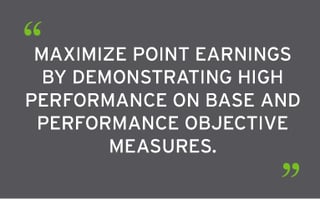 As with the quality category, you should use existing MU reports to monitor compliance and establish performance improvement plans. Once again, Epic offers organizations the tools they need to implement workflows to capture information and report on measures in this category.
As with the quality category, you should use existing MU reports to monitor compliance and establish performance improvement plans. Once again, Epic offers organizations the tools they need to implement workflows to capture information and report on measures in this category.
While there are no benchmarks defined by CMS for this category, you can maximize point earnings by demonstrating high performance on base and performance objective measures. You can also earn bonus points by reporting to public health or clinical data registries.
Based on performance reports of audits conducted under the MU program, the Security Risk Assessment objective continues to be an area of opportunity for many practices. Given the complexity of IT systems and HIPAA standards, providers may consider enlisting the services of an information security professional to conduct a formal risk analysis. A risk analysis will include an evaluation of workflows related to transmission of protected health information (PHI), security and access considerations, identification of vulnerabilities and threats, and a plan of action for mitigating identified risks. Providers should be prepared to address deficiencies, document interventions, and establish processes for reviewing privacy and security policies and practices regularly.
It’s important to note that MIPS does not preclude Medicaid-eligible professionals from attesting as part of the Medicaid EHR incentive program.
Improvement Activities
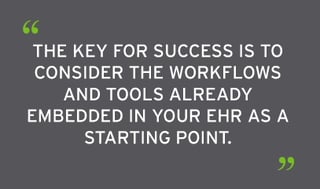 The Improvement Activities category is worth 10 percent of total program points and is new territory for many providers. Clinicians should select and report on four activities weighted medium to high, from a list of 92 available activities that demonstrate efforts to improve patient safety, care coordination, and patient engagement over time. Many of these activities are likely already well-engrained as part of the culture of many practices. The key for success in this component is to consider the workflows and tools already embedded in your EHR as a starting point.
The Improvement Activities category is worth 10 percent of total program points and is new territory for many providers. Clinicians should select and report on four activities weighted medium to high, from a list of 92 available activities that demonstrate efforts to improve patient safety, care coordination, and patient engagement over time. Many of these activities are likely already well-engrained as part of the culture of many practices. The key for success in this component is to consider the workflows and tools already embedded in your EHR as a starting point.
Some quick wins for Epic organizations include screening tools embedded in the EHR (falls, diabetes, depression, tobacco), patient engagement through a patient portal, timely communication of abnormal test results, and use of evidence-based decision support tools.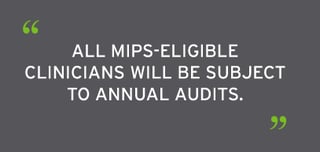
It's very important to keep in mind that all MIPS-eligible clinicians will be subject to annual audits to maintain the integrity of the MIPS program and protect against fraud. As with the MU incentive program, you must maintain evidence to support program measure selection and performance, EHR configuration and functionality, and ongoing improvement activities in the likely event of an audit.
Your Path to MIPS Success
Whether you’re brand new to the quality reporting arena or were one of the first to throw your hat into the ring, Epic customers can leverage existing MU and PQRS workflows, decision-support tools, templates, and standardized reports to ease the transition into MIPS. Successful reporting involves committing the time up front to understanding program requirements, analyzing current performance against available benchmarks, and identifying relevant performance improvement opportunities.
Need Help?
Nordic has proven success in leading regulatory and quality reporting initiatives in the Epic EHR space. Nordic consultants can work to manage the MIPS reporting strategy of medium to large medical practices including measure selection, workflow redesign and build, complex clinical decision support, data submission, reporting, ongoing performance improvement, and audit readiness. We work with clinicians to maximize point earnings and position clinicians and groups for future program success.
Gigi Elizee is a senior Nordic consultant with experience leading quality and regulatory reporting initiatives for healthcare organizations. She has a diverse nursing background that includes leadership in healthcare quality, nursing informatics and clinical education. Epic certified in Orders and Clin Doc, Gigi has expertise in workflow analysis, reporting, clinical decision support, and business continuity planning.
